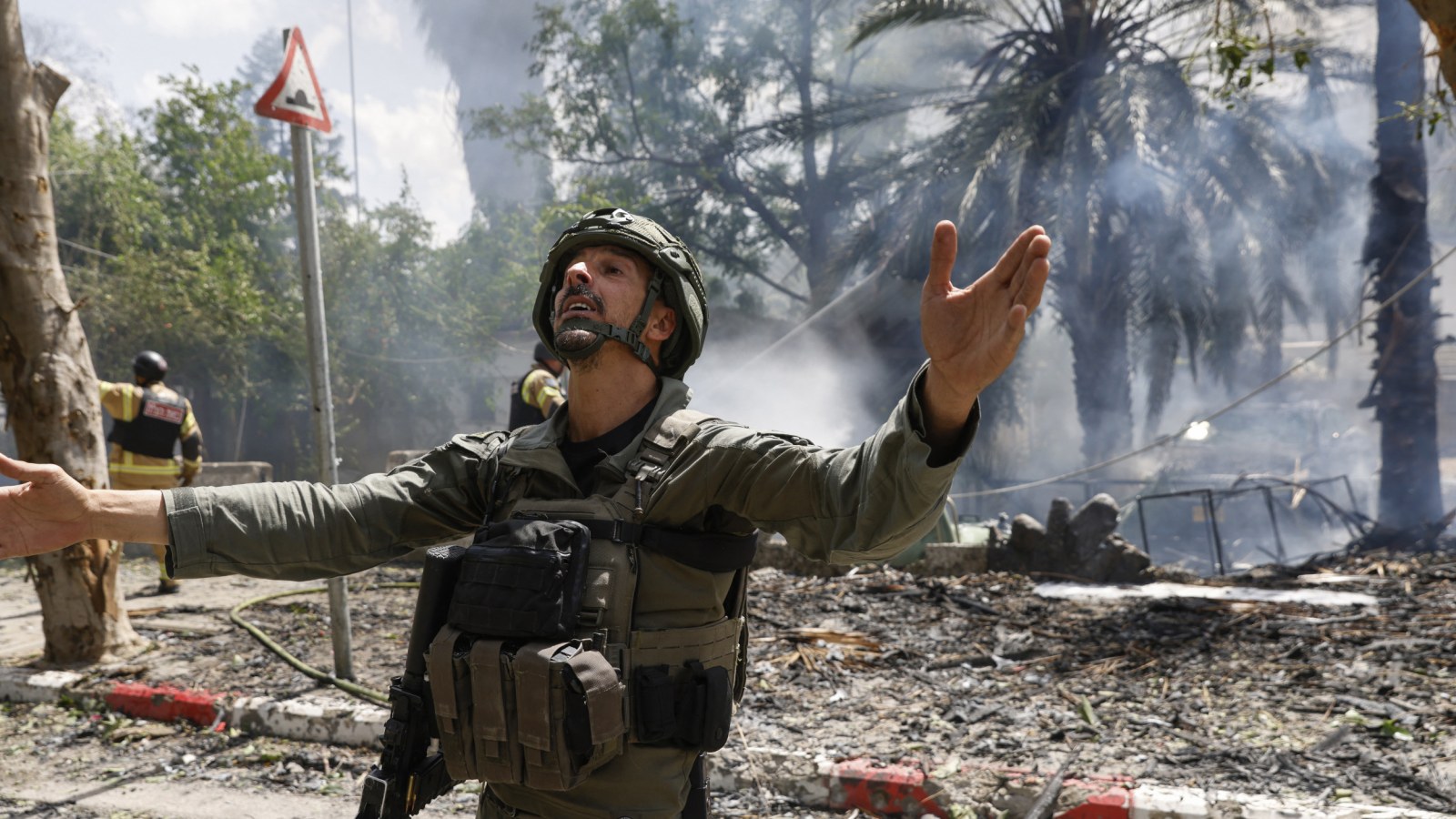The ongoing conflict between Israel and Hezbollah is a dire situation, as described by both local residents and international authorities. UN Secretary-General Antonio Guterres warned that a full-scale war would be catastrophic.
Despite this, David Kamari, a resident of the Israeli border town of Kiryat Shmona, believes such a war might be a necessary solution to the constant bombardments from Hezbollah. He recounts the damage and daily terror he faces, emphasizing his lifelong connection to the area and his determination to stay.
Following the 7 October Hamas attacks, most of Kiryat Shmona’s population evacuated due to increased Hezbollah rocket fire in support of Hamas. However, some, like David, remain. His stance is firm: he sees war with Hezbollah as the only way to end the incessant attacks.
This sentiment is echoed by local leaders who argue that no country should tolerate continuous fire against its citizens and that the choice is between war now or later.

Full-Scale War with Hezbollah Seen as Necessary by Some Amid Ongoing Conflict
Israel has retaliated by targeting Hezbollah positions and leaders in Lebanon, leading to an escalation of the conflict with more drones and missiles being launched by Hezbollah. Despite the risks, many Israelis support military action to push Hezbollah back.
This situation is compounded by Israel’s simultaneous conflict with Hamas in Gaza, with Prime Minister Benjamin Netanyahu committed to continuing the Gaza war until Hamas is destroyed.
On the Lebanese side, the impact is equally severe. Many have evacuated from the border areas, but those remaining, like Fatima Belhas, endure the bombardments and are resigned to staying in their homes despite the dangers. Similarly, Hussein Aballan, who supports Hezbollah’s actions, sees resistance as the only way to remain strong against perceived aggression.
The potential for a full-scale war raises the stakes significantly. Both Hezbollah and Israel possess substantial military capabilities, with the former backed by Iran and the latter supported by the US. A full-scale war would have devastating consequences, a reality acknowledged by both sides and international observers.
The prolonged conflict increases the risk of a miscalculation, putting additional pressure on the Israeli government to find a resolution.
The aftermath of the 7 October Hamas attacks has fundamentally altered the security landscape for Israel. Many residents and leaders near the border argue that previous agreements with Hezbollah are no longer viable.
This sentiment is shared by individuals like Tom Perry, who survived a Hezbollah rocket attack and now believes that eliminating Hezbollah may be the only way to achieve lasting peace despite the potential catastrophe such a conflict would bring. There are also calls for political change within Israel as frustration with current leadership grows amid ongoing conflicts.























